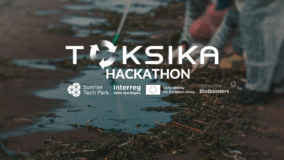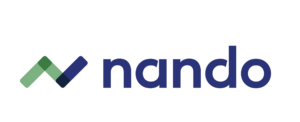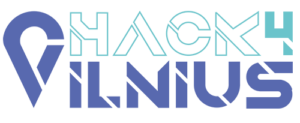
Toksika Hakathon
TOKSIKA specializes in biological soil treatment and invites innovative proposals to accelerate the cleanup of petroleum-contaminated soils while preserving the delicate balance of microorganisms essential for the process. Contamination with petroleum products poses [...]
TOKSIKA specializes in biological soil treatment and invites innovative proposals to accelerate the cleanup of petroleum-contaminated soils while preserving the delicate balance of microorganisms essential for the process. Contamination with petroleum products poses a significant environmental threat, disrupting ecosystems and slowing natural recovery efforts. TOKSIKA challenges you to design an efficient and environmentally friendly solution to enhance bioremediation without harming the microbial communities driving the cleanup. Depending on the maturity of your idea, TOKSIKA offers Hackathon participants the opportunity for business collaboration, joint projects, or pilot programs to bring your concept to life.

ABOUT THE CHALLANGE:
Europe, with approximately 2.8 million potentially polluted sites identified by the European Environment Agency. Many of these sites, especially in industrial and former industrial regions such as Germany, France, the United Kingdom, Italy, and Eastern European countries like Poland, the Czech Republic, and Lithuania, are heavily polluted by petroleum products. These pollutants are typically found in areas associated with oil production or processing facilities, ports, and former military bases. The most common contaminants include crude oil, diesel, kerosene, and heavy fuel oil.
In Lithuania, this challenge is particularly significant. Since the 1990s, extensive work has been carried out to inventory and investigate polluted sites, including landfills, military bases, oil storage facilities, and gas stations. According to the Lithuanian Geological Survey, as of 2022, there are 12,520 identified potential pollution hotspots across the country. Of these, approximately40%—around 5,000 sites—are associated with petroleum-related activities, such as fuel stations, oil storage facilities, and vehicle maintenance yards, covering an estimated 600–700 hectares of land.
The environmental and health risks posed by these contaminated sites are severe. Petroleum products can degrade soil quality, harm ecosystems, and threaten water resources. Biological soil treatment, which uses microorganisms to break down contaminants, has emerged as a promising solution. However, the process is often slow and faces a significant challenge: ensuring the survival and effectiveness of the microorganisms during the cleanup process.
This hackathon's challenge focuses on accelerating biological soil treatment for petroleum-contaminated (especially long-chain petroleum hydrocarbons) sites while preserving the viability of the microorganisms responsible for breaking down pollutants. By addressing this challenge, participants can contribute to a cleaner, healthier environment and create scalable solutions for soil remediation efforts, not only in Lithuania but across Europe and beyond.
TOKSIKA IS LOOKING FOR:
Development of Bio-Stimulants or Nutrient Additives. Create targeted bio-stimulants or nutrient formulations to enhance the activity and efficiency of microorganisms involved in the degradation of long-chain petroleum hydrocarbons. These additives could optimize microbial metabolism without harming their survival.
Microbial Consortia Engineering. Design or identify microbial consortia (a combination of bacteria, fungi, or other microorganisms) that specialize in breaking down long-chain hydrocarbons. The focus could be on robust, naturally occurring, or genetically enhanced microorganisms that thrive in contaminated soil conditions.
Optimized Environmental Parameters for Bioremediation. Develop methods or technologies to monitor and optimize critical environmental factors like temperature, pH, oxygen levels, and moisture in the soil to create ideal conditions for microbial activity and hydrocarbon degradation.
Encapsulation or Protective Coating for Microorganisms. Innovate protective encapsulation techniques to shield microorganisms fromEvaluation criteria harsh environmental conditions or toxic by-products during bioremediation. This approach can ensure their survival and sustained activity throughout the process.
Biodegradable Soil Aeration or Mixing Systems. Create biodegradable systems or technologies that improve oxygen flow and soil mixing, accelerating microbial degradation of hydrocarbons while minimizing disruption to the microorganisms.
Enzyme-Based Solutions. Develop enzyme-based treatments that work synergistically with microorganisms to break down long-chain hydrocarbons faster. This could include designing enzyme cocktails that target specific hydrocarbon bonds, reducing degradation time.
EVALUATION CRITERIA:
We welcome as participants startups, SMEs, research groups, student groups, consulting organizations, companies offering solutions to the challenge.
The evaluation criteria used to select the teams and finally the winner:
- ACCELERATION OF REMEDAIATION. (The solution’s ability to accelerate the breakdown of long-chain petroleum hydrocarbons in soil, demonstrating measurable improvements compared to existing methods.)
- IMPACT TO MICROBIAL ECOSYSTEM. (The extent to which the solution ensures the survival and sustained activity of microorganisms involved in the bioremediation process, without causing harm or disruption to the microbial ecosystem.)
- SCALABILITY. (The feasibility of scaling the solution for large-scale applications, considering factors such as cost-effectiveness, resource requirements, and ease of implementation.)
- SAFETY AND REGULATORY COMPLIANCE. (The solution’s alignment with environmental sustainability, minimizing secondary pollution or harmful by-products, and adhering to safety and regulatory standards.)
- INNOVATIVENESS AND NOVELTY. (The originality and creativity of the solution, incorporating cutting-edge sciencetechnology, or new perspectives to address the challenge in a novel way.)
OFFER FOR THE TEAMS:
The winner of the Hackathon receives a chance to establish a business relationship with TOKSIKA, including the possibility of preparing and implementing a joint development project / joint tests of the proposed solution.
TIME TABLE:
2025.02.27, 14:00 EET: Publication of the challenge in a launch webinar
2025.03.27, 23:59 EET: Deadline for submitting an application
2025.04.01, 11:00 EET: Selection of teams published
2025.04.09, 14:00 EET: Online kick-off event where the participating teams will meet each other and representatives of the sponsoring company. At the kick-off event, representatives of company will tell the participating teams more about the challenge.
2025.05.6-7: Hackathon Day(s) (1- or 2-day event). At the end of the day the winning team(s) will be selected. Participation is possible in the Hackathon event either in agreement of venue or online.
CONTACT PERSON:
Antanas Popiera, antanas@ssmtp.lt
ORGANIZERS:
Sunrise Valley Science and Technology Park is a non-profit organization, founded in 2003. The Park features long-standing traditions in the development of entrepreneurship, promotion of business and science collaboration, provision of infrastructure, and other innovation support services to young, innovative enterprises as well as to other knowledge-intensive businesses. The Park is a perfect place for innovative technological enterprises, enterprising members of the universities community, and an R&D environment, who aim to commercialize their knowledge, establish and develop businesses and expand innovative activity.
JAMK, Jyväskylä University of Applied Science has long experience in organizing hackathons. BioBoosters by JAMK is a Bioeconomy Business Accelerator that aims to create new businesses and globally significant solutions to combat climate change in the international bioeconomy environment. Accelerator’s key tasks are to develop business within bioeconomy and create sustainable business based on new innovations, utilizing new technologies and digitalization, developing abilities and know-how, and building business networks and ecosystems.
BioBoosters project network supports TOKSIKA Hackathon via communication and marketing cooperation. The network features 9 prominent bioeconomy innovation hubs around the Baltic Sea – from Finland, Sweden, Germany, Estonia, Latvia, Lithuania, and Poland. The BioBoosters project will organize a total of 18 Hackathons to support the sustainability mission of the bioeconomy companies. The project is co-funded via the Interreg BSR program and the European Regional Development Fund.

NANDO Hackathon
NANDO is tackling the complex challenges of excessive fertilization, which require innovative solutions. Developing sustainable agricultural practices and introducing eco-friendly alternatives to traditional nitrogen-based fertilizers are crucial [...]
NANDO is tackling the complex challenges of excessive fertilization, which require innovative solutions. Developing sustainable agricultural practices and introducing eco-friendly alternatives to traditional nitrogen-based fertilizers are crucial steps. These solutions aim not only to reduce the environmental impact of fertilizers but also to promote the long-term health of ecosystems and communities.
NANDO invites you to create an innovative solution to address the issue of over-fertilization caused by excessive fertilizer use on European farms. Depending on the maturity of the idea, NANDO offers hackathon participants the opportunity to collaborate with businesses, launch a joint project, or conduct pilot testing to bring their idea to life.

What is the essence of the challenge?
NANDO is tackling a pressing issue in European agriculture—excessive fertilization, which poses a serious threat to both environmental and agricultural sustainability. The company develops and offers biostimulants, surfactants, and chemical products designed for use in crop cultivation, livestock farming, and various industrial sectors. By leveraging innovation, it integrates advancements in biotechnology, chemistry, and engineering.
Uncontrolled use of fertilizers, particularly nitrogen and phosphates, has led to numerous interconnected problems across the Baltic Sea region and the European Union. One of the most critical issues is water pollution. Excessive fertilization results in nutrient runoff into water bodies, contaminating them. This pollution triggers eutrophication, causing algal blooms that deplete oxygen levels in aquatic ecosystems. As a result, fish and other marine life suffer, and water quality deteriorates significantly.
We collaborate with:
JAMK – Jyväskylä University of Applied Sciences, which has extensive experience in organizing hackathons. BioBoosters by JAMK is a bioeconomy business accelerator aimed at fostering new enterprises and globally significant solutions to combat climate change within the international bioeconomy landscape. The accelerator’s main objectives include developing businesses in the bioeconomy sector, creating sustainable ventures driven by innovation, leveraging new technologies and digitalization, enhancing skills and knowledge, and building business networks and ecosystems.
The BioBoosters project network contributes to the Nando Hackathon by providing communication and marketing support. This network unites nine key bioeconomy innovation hubs across the Baltic Sea region, including Finland, Sweden, Germany, Estonia, Latvia, Lithuania, and Poland. As part of its mission, the BioBoosters project aims to organize a total of 18 hackathons to support bioeconomy businesses in achieving their sustainability goals. The project is co-funded by the Interreg BSR program and the European Regional Development Fund.


Hack4Vilnius
HACK4VILNIUS is a hackathon dedicated to promoting innovations for the city of Vilnius. The first HACK4VILNIUS took place in 2018 and has been already held for 4 years. Traditionally, the hackathon is organized every year in early autumn. In 2020, due to [...]
HACK4VILNIUS is a hackathon dedicated to promoting innovations for the city of Vilnius. The first HACK4VILNIUS took place in 2018 and has been already held for 4 years. Traditionally, the hackathon is organized every year in early autumn. In 2020, due to pandemic, the event was held virtually.
The three-day event aims to promote innovations that help businesses, organizations, people, and the capital itself overcome the biggest challenges it faces in becoming a smarter, healthier, and greener city that offers sustainable mobility solutions. Every year event attracts over 100 participants, among which are programmers, designers, business developers, students, or people motivated and willing to create innovative solutions for the capital. In order to gain knowledge and successfully develop their solutions, teams are offered consultations with mentors from prominent business and public companies, including successful start-ups, business support organizations, and corporate lawyers. Seminars for the development of specific skills are also offered. The hackathon ends in the final pitching event where teams get a chance to present their solutions to the jury and win valuable prizes.